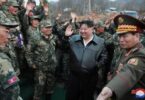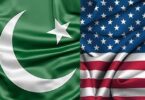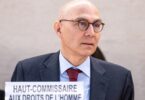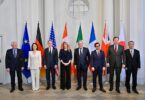MOSCOW (TASS): Moscow has called on the International Atomic Energy Agency (IAEA) to refrain from politicizing the situation around the Iran nuclear deal, Russia’s Permanent Envoy to International Organizations in Vienna Mikhail Ulyanov said, addressing a meeting of the IAEA Board of Governors on Thursday.
According to him, Russia has carefully studied the part of IAEA Director General Rafael Grossi’s report concerning the use of the safeguard agreement in relation to the Treaty on the Non-Proliferation of Nuclear Weapons.
“In this regard, I would like to point out that the main goal of the agency’s inspections under the safeguard agreement is to make sure that a country does not use raw and fissionable materials for purposes related to nuclear weapons and any other nuclear explosive devices,” Ulyanov stressed. “We urge the IAEA to ease tensions around these matters, refrain from politicizing them, and return to regular technical cooperation with Iran. Problems should be solved in strict compliance with the safeguard agreement,” the Russian diplomat said.
“We would like to make it clear that political speculations and external pressure are counterproductive and will only lead to an impasse,” the Russian envoy added.
Ulyanov highlighted the need “to find a solution that will make it possible to exclude the risks of nuclear proliferation and draw a line under the remaining issues, preventing them from turning into a protracted problem.”
In-person talks between Iran and the five-member international group (Russia, the United Kingdom, Germany, France, and China), aimed at restoring the Iran nuclear deal in its original form, have been going on in Vienna since April. Three expert groups are working on an agreement on resuming the Joint Comprehensive Plan of Action, which would include the lifting of US sanctions on Iran, Washington’s return to the deal, and Iran’s move to resume compliance. The deal’s participants are also holding separate consultations with a delegation of the United States, which withdrew from the agreement in 2018.






